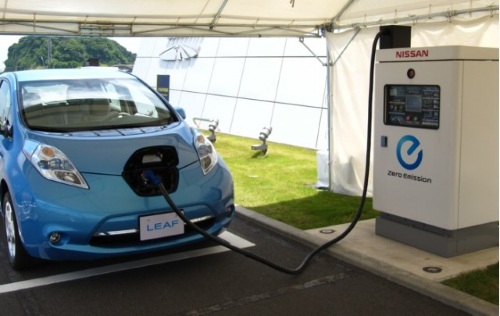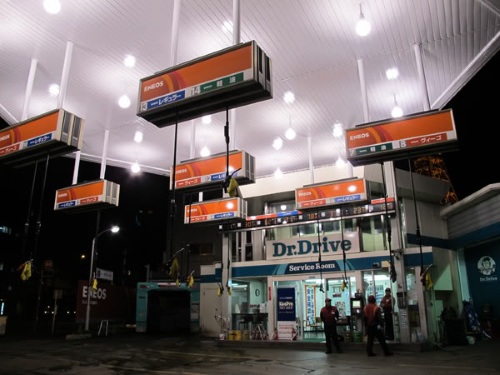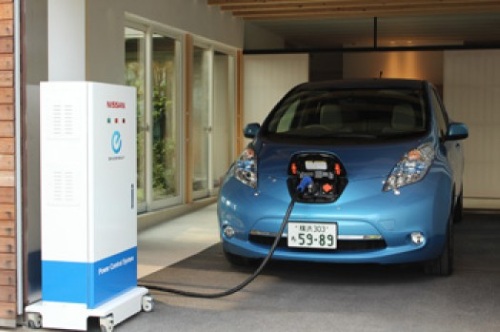In a surprising — albeit slightly skewed — study, Nissan Motor Company has reported that the number of electric vehicle (EV) charging points, including fast-chargers and those in homes, has eclipsed the 40,000 mark in Japan, which is more than the nation’s 34,000 locations that the owner of a gasoline-powered vehicle can pull in to fill up.

This is an important benchmark to achieve, as the anxiety of being stuck away from home in an electric car low on power and without a charging station nearby is one of the biggest concerns consumers have when considering the purchase of an EV.
Analysts believe that as the charging network continues to expand, and batteries become increasingly powerful, these concerns will begin to wane.
“An important element of the continued market growth is the development of the charging infrastructure,” Joseph G. Peter, Nissan chief financial officer, confirmed to analysts on a conference call.

One of the criticisms of Nissan’s report is the fact that these numbers do not reflect the fact that each gas station has multiple ports where a driver can pull their vehicle in to fill up, as opposed to one EV at a time per power point (so it’s still more convenient to fill a gas-powered car at a gas station). Also, the company’s decision to include home-based power points, with the argument being that the EV-owning public will, as a whole, probably be less than enthusiastic at the idea of a stranger pulling up their driveway to charge an EV.
Nissan explained that it felt it necessary to include these locations to display what appears to be an upward trend in terms of EV charging location development; also, it appears as though a sharing economy is beginning to emerge among electric-vehicle owners, wherein some homeowners are, in fact, willing to make their chargers available to other drivers, and are advertising the availability of their home-based stations online and by way of mobile app.

Speaking a bit more globally to the trend of EV charging station development, automakers are beginning to recognize that oil companies are unwilling, or are otherwise none too keen about the idea of installing plugs next to gasoline pumps (for obvious reasons); as such, these companies are taking it upon themselves to create their own power networks.
Tesla Motors is the most obvious case in this scenario, as the company embarked on a rather bold plan to create a nationwide network of fast charging stations in the United States. Also taking on this task: Bayerische Motoren Werke AG and Volkswagen AG, both of which announced last month that they will be entering the network operated by CharePoint Inc., and plan to build close to 100 fast chargers along the busiest roadways of the U.S. coasts, from Portland to San Diego in the west, and from Boston to Washington in the east.
One country that appears to be ahead of all the rest is the Netherlands, where there are already over 9,000 public charging points for EVs, and only about 4,200 gas stations left.
Via Bloomberg
Advertisement
Learn more about Electronic Products Magazine





